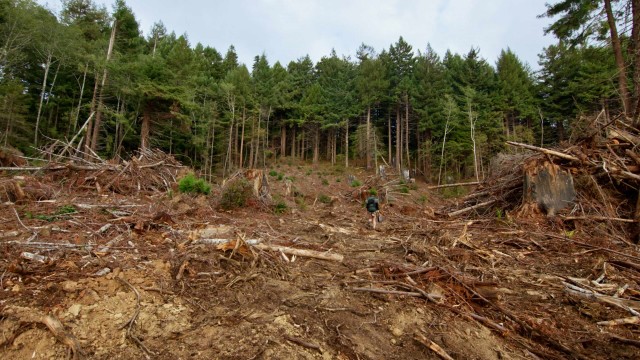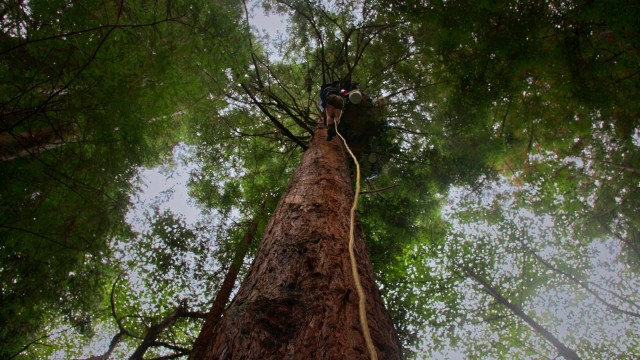Human beings are obsessed with rare, beautiful things, and more often than not, these prized items are acquired in a wasteful manner. Elephants are killed for the ivory in their tusks. Rhinos are poached for their horns. Large, majestic creatures, like tigers and lions, are slaughtered for sport, then their heads are turned into trophies, their coats into rugs, and their body parts are scattered across the black markets of the world for use in pseudo-scientific rituals or worse, decoration.
These large scale losses of life have left a gaping hole in the food chain, which echoes throughout the ecosystems they inhabit, and though popular sentiment is firmly in favor of ending poaching, there are other trades that are seen as more permissible even though they’re just as damaging to the delicate balance of the natural world. Companies are regularly given permission to mine delicate parts of the earth for ore, suck aquifers dry, and chop down centuries-old trees. Though it might seem like a jump to compare the lives of wild animals with the lives of trees, everything in nature is connected, and at some point we must remember that the success of a species – like ours, for instance – depends on the delicate balance of the natural world.

A member of the “forest defense” , the focus of short film Sentinels, makes their way to their temporary home in the trees
Which brings us to Sentinels, which focuses on one front of the climate war – the David and Goliath-like fight between environmental activists and logging companies in the Redwood forests of California. Co-directed by Derek Knowles, a graduate of S/W with Last Days at Paradise High and Lawrence Lerew, who transitioned from editor to director, the short is centered around a group of young environmental activists and their quest to wage a five year long tree-sitting campaign against a logging company that claims to practice “responsible forest management”, while clear cutting whole acres of forest far away from the public eye. It’s a subtle documentary that uses the tools of cinema verité to immerse the viewer in an awe-inspiring place that’s at risk of disappearing. In a way, the film feels like a walk through the woods, but the kind of walk where you can still hear the dull roar of a far off highway, wishing it would go away so you could enjoy the sound of bird song more clearly.
Instead of focusing on the dramatic, violent confrontations that made headlines in decades past, the film investigates the quiet power of nonviolent acts of civil disobedience, and the ways in which technology, occupation, and paperwork are used as modern day weapons in the environmentalist movement. The “forest defense” – as the activists are known – is made up of a group of passionate environmentalists with code names and impressive tree-climbing skills, and they’re generally kind and peaceful. On the other side of the fight, the logging companies have greenwashed their business, and try to hide what they’re actually doing under the veneer of sustainability. The closest we get to a bad guy is a quick glimpse of a man in an orange safety vest and a mask, and the sounds of a construction vehicle crunching its way through the woods at night. But in the context of these peaceful, ancient groves, the presence of the logging company still feels like an invasion, and though the tactics have changed – on the company side as well as the activist side – the battle is still the same. One side wants to protect the trees, and the other side wants to make money from them.

An activist climbs one of the giant trees to settle into the branches and continue their tree-sitting campaign
Like something out of Kelly Reichardt’s cinematic universe, the documentary has a slow, observational pace, and it feels almost first-person in scope, putting us in the shoes of these activists in the hope that we can better understand their reasons for dedicating so much time towards conservation and non-violent demonstration, or at least grasp the scope of how large these trees are and why they’re worth saving. The filmmakers assume that the kind of viewer who watches this documentary will have an inkling of why we need to save these trees, but if you’re unfamiliar with Giant Sequoias and Redwoods, they’re pillars of the natural world, and are relied on by countless species of flora and fauna, serving as safe havens and carbon sinks. They’re also some of the oldest living organisms on earth. If you cut a tree down, you can find out what kind of climate it weathered – when there were fires, when there was drought, etc. In that way, they are a timeline of nature that cannot be replaced.
Ultimately, turning these living, breathing giants into lumber is a crime against the natural world, or at the very least, an unnecessary one in a world where plenty of other tree species exist. As the filmmakers write in a statement: “Our hope is that the film transports audiences into the redwood forests that the film’s subjects are defending so that they might make their own conclusions about the consequences of our modern-day lifestyles, as well as returning the spotlight to the merits of nonviolent direct action.”
There’s always been a certain mythology associated with California. For centuries, it’s been seen as an earthly paradise, and a place to find fortune or fame. If you look at a map of the state, you see town names that reinforce this myth – Fortuna, El Dorado, Eureka, Paradise – and for hundreds of years, people have crossed the country to settle here in the hopes of finding a better, richer life. Ultimately, a lot of them have succeeded in that goal, or at least found some kind of happiness on the way there. But nothing comes without a cost, and in a world where wells have run dry and skies have turned an apocalyptic shade of orange, it’s clear that things must change, and preserving some of our oldest forests from destruction feels as necessary as ever. At the end of the day, Sentinels is a reminder of what we must save in order to save ourselves.
As for these particular tree sitters, their battle continue, as Knowles has just informed us that “Green Diamond, the multi-national timber company, has moved into the area protected by the sit and has begun felling ‘a large portion’ of trees in the area”. The dedicated activists are now “actively recruiting amongst their network for in-person support” and it looks like they’re going to be committing to their active occupation for the “long haul”.

 Adam Banks
Adam Banks